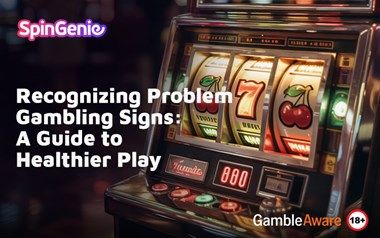In the world of digital gambling, Random Number Generators (RNGs) serve as the foundation of fairness and integrity. For any real money online casino seeking legitimate licensing, particularly in strictly regulated markets like the UK, robust RNG systems aren't just important—they're absolutely mandatory. This deep dive explores why these complex algorithms form the cornerstone of casino licensing and how they protect both players and operators in the online gambling ecosystem.
The Regulatory Importance of RNGs
Gambling regulators worldwide consider RNG verification a non-negotiable requirement for licensing approval. The UK Gambling Commission, Malta Gaming Authority, and other respected bodies mandate rigorous RNG testing before granting licenses because these systems ensure:
Fair Game Outcomes: Certified RNGs guarantee that every card dealt, every slot symbol combination, and every roulette number emerges completely at random, matching the published game rules and probabilities. Without proper RNG implementation, casinos could theoretically manipulate results to their advantage.
Player Trust Maintenance: Licensed gambling depends entirely on player confidence in game fairness. When players know outcomes are genuinely random and untampered with, they can focus on enjoying the entertainment value rather than questioning the platform's integrity.
Mathematical Accountability: RNG certification forces casinos to transparently document game mathematics and prove their implementations match these models. This prevents operators from secretly altering payout percentages or feature frequencies after receiving licensing approval.
As our guide on identifying fair RNGs explains, these systems undergo extensive testing to earn certification. Regulatory bodies don't simply take operators at their word—they require independent verification from accredited testing laboratories.
How RNGs Influence Licensing Decisions
When a casino applies for licensing, regulators examine several RNG-related factors:
Technical Implementation: The RNG must use approved algorithms that generate statistically random, unpredictable results. Common implementations include the Mersenne Twister algorithm and cryptographic RNGs that incorporate hardware entropy sources.
Game-Specific Configuration: Each game's RNG must correctly implement its specific rules and payout structures. A blackjack RNG differs significantly from a slot machine RNG, and both must be properly configured for their game types.
Security Protocols: Licensed casinos must demonstrate robust protections against RNG manipulation, including encryption of RNG outputs and prevention of unauthorized access to the number generation process.
Testing Documentation: Operators must provide comprehensive reports from approved testing agencies like eCOGRA, iTech Labs, or Gaming Laboratories International (GLI). These reports verify the RNG's statistical randomness and proper game implementation.
Regulators may deny licenses or impose strict conditions if any of these elements don't meet their standards. The testing process often takes months as auditors run millions of simulated game rounds to verify outcome distributions match expected probabilities.
Ongoing Compliance Requirements
RNG scrutiny doesn't end with initial licensing approval. Licensed casinos must maintain continuous compliance through:
Regular Retesting: Most jurisdictions require annual RNG recertification at minimum, with some mandating quarterly or even monthly verification for certain game types. These ongoing tests ensure no degradation or manipulation of the RNG systems over time.
Software Update Protocols: Any changes to game software, including routine updates and new feature implementations, typically require partial RNG retesting to confirm modifications haven't affected fairness.
Incident Reporting: Licensed operators must immediately report any suspected RNG malfunctions to regulators and suspend affected games until the issues are resolved and verified.
Audit Trail Maintenance: Casinos must keep detailed logs of RNG outputs and game results to facilitate investigations if fairness questions arise. These logs help distinguish normal statistical variance from potential system issues.
The UK Gambling Commission in particular maintains strict oversight of licensed operators' RNG systems. Their technical standards specify everything from acceptable RNG algorithms to proper implementation of game rules and random result generation.
Consequences of RNG Non-Compliance
For licensed casinos, RNG failures carry severe repercussions:
Financial Penalties: Regulators impose substantial fines for RNG-related violations. Recent UKGC penalties for RNG issues have reached six and seven-figure sums.
License Suspension: Serious or repeated RNG failures may lead to temporary suspension of operating licenses until problems are corrected and verified.
Reputational Damage: Public notices of RNG violations can permanently harm a casino's standing with players, making recovery difficult even after technical issues are resolved.
Criminal Liability: In extreme cases where intentional RNG manipulation is proven, operators and individuals may face criminal fraud charges.
These strict consequences explain why reputable casinos invest heavily in RNG compliance—the risks of cutting corners far outweigh any potential benefits.
Player Protections Enabled by RNG Regulation
The rigorous RNG requirements imposed by licensing bodies directly benefit players through:
Guaranteed Fair Odds: Certified RNGs ensure games pay out according to their advertised RTP percentages over the long term. While short-term variance occurs, players can trust the mathematical models.
Feature Integrity: Bonus rounds, free spins, and other special features trigger at the published frequencies rather than being manipulated based on player behavior or other factors.
Provable Fairness: The testing documentation behind licensed casinos' RNGs provides tangible proof that games operate fairly, unlike unregulated platforms that may make empty fairness claims.
Dispute Resolution: When questions about game fairness arise, licensed casinos must provide regulators with RNG output logs that can verify proper operation during the period in question.
These protections form the foundation of safe, responsible gambling environments where players can enjoy games without worrying about hidden manipulation.
The Future of RNGs in Casino Licensing
As online gambling evolves, so do RNG standards and verification processes:
Advanced Testing Methods: New statistical analysis techniques allow auditors to detect more subtle potential RNG issues, further strengthening fairness guarantees.
Blockchain Verification: Some regulators are exploring blockchain-based RNG logging to create immutable records of game outcomes that players could potentially verify.
Live Game RNGs: As live dealer games incorporate more RNG elements (for card shuffling, etc.), regulators are developing specific standards for these hybrid systems.
Cross-Jurisdictional Standards: International bodies are working to harmonize RNG requirements across regulated markets, making compliance clearer for operators and giving players consistent protections worldwide.
These developments will likely make RNG verification even more central to licensing decisions in coming years as regulators seek to maintain fairness in an increasingly complex digital gambling landscape.
Why Players Should Care About RNG Licensing
Understanding the critical role of RNGs in casino licensing helps players:
Choose Reputable Operators: Licensed casinos with proper RNG certification offer fundamentally fairer gaming experiences than unregulated platforms.
Interpret Game Behavior: Knowledge of how RNGs work helps set realistic expectations about winning streaks, losing runs, and bonus feature frequency.
Identify Potential Issues: Players who understand proper RNG operation can better recognize when something seems amiss with game behavior.
Make Informed Complaints: When raising fairness concerns, players who understand
RNG requirements can provide more useful details to regulators and operators.
Ultimately, the RNG standards imposed by licensing bodies exist to protect players first and foremost. By choosing properly licensed casinos, players ensure they're gambling in environments where fairness is verified rather than merely claimed.
RNGs guarantee fair play, a core requirement for licenses. Play certified slots at Spin Genie UK and enjoy peace of mind.













